In class this past week, one of my yoga teachers shared an excerpt from Nischala Joy Devi’s The Secret Power of Yoga, which is a woman-centric reading and elucidation of the yoga sutras (I picked up the book a couple days later, and I’m enjoying it so far—much less dense and relatable than the more scholarly commentaries on the text).
The section he pointed to is entitled “sweets make us sweet.” Devi describes being in India and sharing food with Yoga Master Sri Shastraji, who noticed her enthusiasm for the desserts on offer. When she admitted to loving sweets, he replied,
‘What a great understanding of the teachings . . . The Vedas tell us that when we are able to experience the sukha [sweetness or happiness] of life in any form, it serves to remind us of the Divine Self. If we do not experience sweetness, we assume that it is not there. With the absence of sukha, our only option is to identify with the opposite, dukha [sadness or bitterness].
Many teachers and translators of the scriptures encourage us to avoid the sweetness in life to better prepare us for the big payoff, enlightenment. It is actually the opposite. By generously sprinkling our lives with joy and sweetness, their seeds take root within us, reflecting our every action. This ever-present joy is the greatest enlightenment, and it can be ours right now!’
It’s not unusual for me to translate life lessons into culinary terms, and my first response to the story was to place it into the context of recovery. I thought about all of the foods I denied myself for years and years: not just things that were literally sweet, like dessert, but any foods that didn’t serve a nutritional purpose or fit into my understanding of an optimal diet. The emphasis on nutrient density was fine, but in my hands it became so overbearing that it left me no room for pleasure for pleasure’s sake, for food experiences that are rewarding on a purely hedonic level.
Such experiences have become an important part of how I understand health. All those years of self-denial and saying no to any kind of indulgence kept me stuck in rigid behavioral patterns that only reinforced my anxiety and compulsive tendencies. The way I ate may have looked admirable on paper, but it was too strained to rightly be called healthful.
Allowing pleasure to flood my diet—not at the expense of wholesomeness, and certainly not in competition with it, since healthful food can be enormously pleasurable, but as an experience that stands apart from nutritional value—has actually encouraged me to be open to sweetness wherever it shows up. The more I ease up and enjoy food, the more able I am to savor all of the goodness that life has to offer.
It would be easy to gaze back on the last twelve months and see mainly the struggles. A relationship to which I’d devoted myself fully ended—not exactly suddenly, but not in a way that felt inevitable to me. It was a shock, and after the separation came a period of trying to piece back together new routines, new habits, and—hardest of all—a new outlook on my future. I was just starting to bounce back from a bout of depression when it happened, and for a while it was a daily struggle to access any sense of resilience.
If I shift my perspective around, though, I see a year that was sprinkled everywhere with sweetness. I see friendships that were rekindled. I see myself asking people for help and being surprised at how generously they responded. I remember laughing in spite of heartache, sometimes in the company of others who were making sense of things, too, sometimes alone. I look back on my trip to Prague, where I was reminded that I can be my own, good friend. I see all of the little ways in which I reclaimed my home space and routines after many years of sharing. I see a new hobby—bread baking—that gave me so much comfort and reward.
As always, I remember the simple pleasures of what I ate, from simple and homey suppers to slices of cake. Food sustained me in ways that were much more than physical this year, and I didn’t take a single bite for granted.
At Thanksgiving, I mentioned having to resist the longing for a delivery of good fortune that would offset some of the tough stuff. It’s not a desire I’m proud of, exactly, but it’s there—wanting something (or someone) great to sweep me off my feet in 2018. As I meditated on Devi’s words this week, I realized that a great, redemptive plot twist isn’t really what I need. Sweetness is everywhere, if I can allow myself to recognize it for what it is and seek it out from moment to moment.
I face challenges in doing this: my skill for crafting gloomy narratives, my tendency to be as ascetic and strict with my routines as I used to be with food, and mental health predispositions that I’ll probably always wrestle with.
But if I’m carrying any intention into this new year, it’s the desire to “generously sprinkle” my life with joy as Sri Shastraji describes. The goal isn’t to deny suffering where it exists, but to see sweetness and abundance alongside of the things that aren’t and will never be easy—both in my personal life and in how I perceive the world around me. For once, I hope to hold a vision of life that acknowledges sweetness and suffering simultaneously, in which pain needn’t eclipse joy.
I’ve always closed up my pre-New Year’s Eve posts with the mantra of Lokah Samastah Sukhino Bhavantu, or “may all livings being be happy and free.” I whisper this mantra all the time, in yoga class, in silent meditation at home, and when I pray. Sometimes I imagine that I’m sending it out to the many non-human animals who are not and never have been free, and sometimes I direct it toward all of my fellow human beings who are trapped or suffering.
Today, I send it to all of you, to all human and non-human animals around the world, and I’m allowing myself to receive it, too. I wish everyone happiness, joy, and—most of all—the experience of sweetness in 2018.
Happy New Year’s Eve. Thank you for reading. And enjoy the recipes and reads.
Recipes
Whipping up a batch of vegan dirty rice this week has me in the mood for Cajun flavors, and I’ve got my eye on Emilie’s hearty vegan jambalaya.
Another kind of dukkah! I love the nut and spice blend, but I haven’t tried making my own yet. I’m inspired by Lindsay’s beautiful roasted vegetable chopped salad, which is dusted with dukkah. Perfect for loading up on veggies in cold weather.
More salad, this time a crunchy, cruciferous mix of raw cauliflower, radishes, radicchio, and a tangy ginger lemongrass dressing (which you can veganize by replacing honey with maple syrup or agave). What a fabulous side dish for this time of year.
Eggplant is long out of season in my neck of the woods, but I’m eager to make Vicky and Ruth’s beautiful stuffed eggplant with fennel and white beans just as soon as I get my hands on it again.
I wish I’d made Ashlae’s vegan coconut banoffee pie yesterday, so that I could celebrate New Year’s Eve tonight with a giant slice! It’ll have to wait till 2018, but I’m sure it’ll be delicious when it happens.
Reads
1. This week, Quartz took an interesting, challenging look at the old idea that depression is as simple as a “chemical imbalance.” The article examines why no single form of treatment, including both antidepressants and psychoanalysis, is necessarily or universally helpful, and invites treatment providers and patients alike to consider the complexities of the illness.
2. Speaking of depression, Upworthy reports on one woman’s viral retelling of what it was like to clean her bedroom after a particularly bad spell. Anyone who struggles with depression can probably relate to the difficulty of doing everyday tasks when it’s particularly bad. The responses that Jonna Roslund got to her before and after cleaning pictures are so touching and supportive.
3. In this bittersweet essay, writer Shelby Vittek describes watching the video of her birth. Part of what makes the experience so poignant is watching her parents—who are now divorced—become new parents together.
4. I love dill, but the more time I spend cooking the more I learn how divisive an herb it can be! I appreciate the New Yorker‘s tribute to it, which would probably resonate with other Greek Americans as well as those whose roots trace back to Russia.
5. New York Magazine rounded up eleven women’s opinions of the best advice they got all year. They range from the profound to the practical to “wear bed socks.” It made me smile, and I hope it makes you smile, too.
My NYE will be as quiet and meditative and early-to-bed as can be. Whether yours is similarly quiet or a full out extravaganza, I hope it’s what you want it to be. See you on the flip side.
xo
You might also like
Happy Sunday, all. It’s a cold and rainy day here in Northampton, MA, where I’m currently visiting for the weekend. I hope you all took some time to read Claire’s moving green recovery post from Friday. Once you’re finished with that, you can get immersed in the following recipes and reads. This cauliflower salad with chickpeas, kale, cumin, lemon, and toasted buckwheat is so full of textural contrast! Love it. I want to drink a vat of this kale and potato soup…
Happy Sunday. It has been a very hot, if beautiful and sunny weekend here in New York. I’ve gotten caught up on email and work, and now I’m back in the process of cooking, testing, and cooking some more. It’s not the most ideal time of the year to have the stove and/or the oven on, but the creative juices are flowing, and that’s what matters. Lots of interesting articles this week, as well as a few beautiful standout recipes from blogger friends. Recipes…
Happy Sunday, friends! I’m returning to New York right now from Pennsylvania, where I was lucky enough to celebrate a dear friend’s wedding yesterday. I hope you’ve all enjoyed some sunshine and rest in the last two days. Here are the recipes and read that have kept me company over the course of weekend travels. To begin, a colorful and enticing bowl of chia and buckwheat porridge from Maike of Elderflower Kitchen. Speaking of colorful bowls, I absolutely love this easy recipe for…
Happy Sunday, everyone. I’ve spent most of this weekend putting finishing touches on the term paper for my psychology class. Lots of work, but it’s interesting work: I’m writing about issues that pop up routinely in these weekend reading posts. Specifically, I’m considering the placebo/nocebo effect as it relates to our experience of food. Too much to summarize neatly here (plus I’m a little braindead from combing through citations), but the research has given me a deeper understanding of what I know intuitively from my work, which…


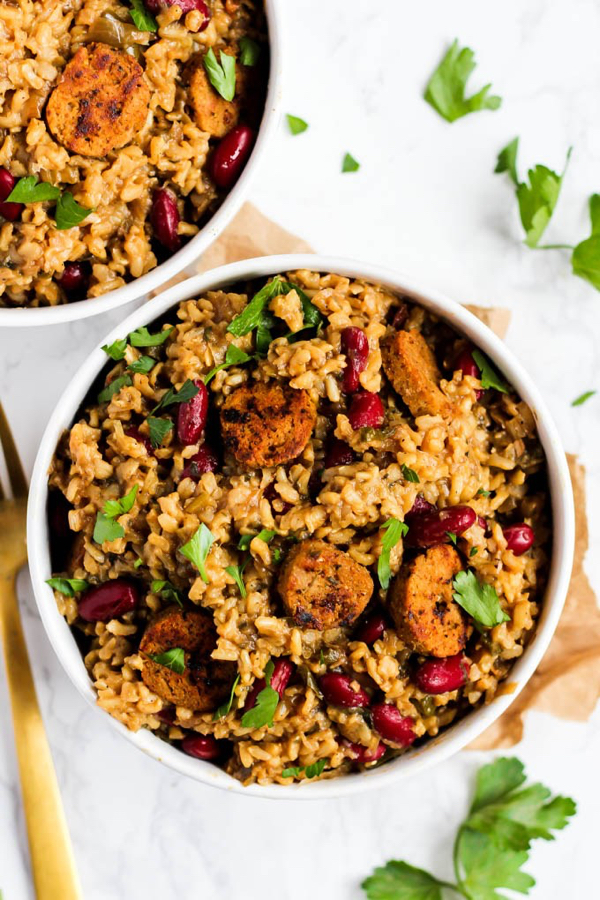
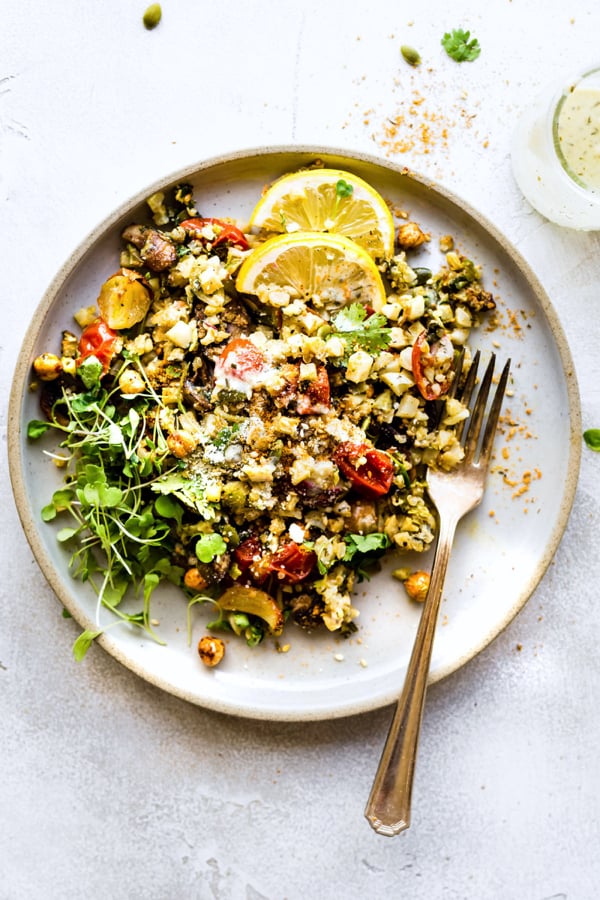
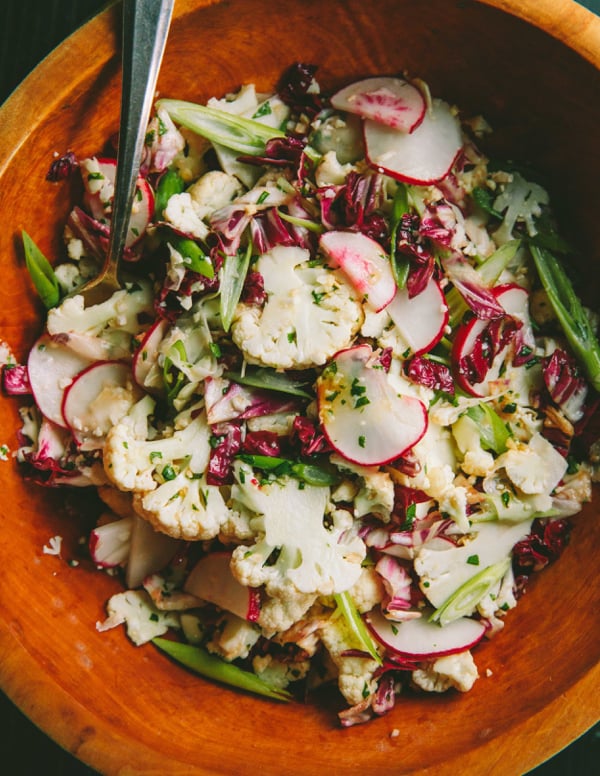
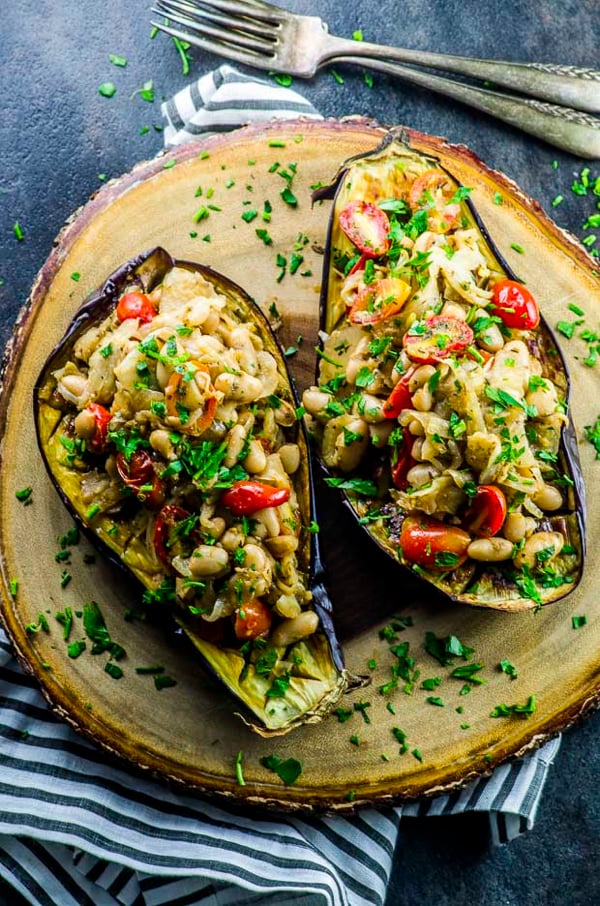
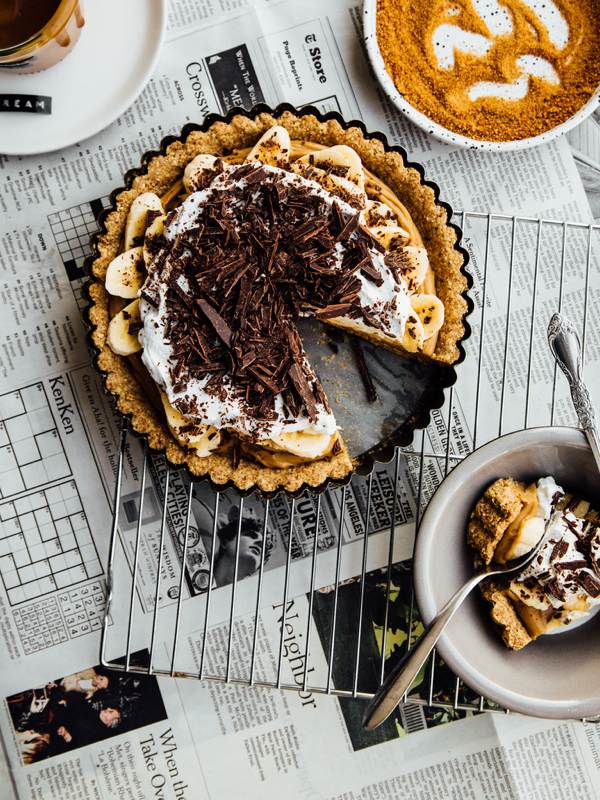
Leave a Comment
Hello Gena, I just wanted to send you a quick message of encouragement in response to a particular sentence in your post above, where you mention your ‘tendency to be as ascetic and strict with my routines as I used to be with food’.
After I ‘recovered’ from anorexia myself, and learned to eat what most people would perceive to be a non-restricted diet (though it wasn’t, not truly, not back then), I spent years in the loop you are referring to here: applying strictness and routine to other aspects of my life outside of food because I knew, consciously, that I couldn’t apply it to diet anymore, not if I wanted to stay healthy, mentally and physically, but somehow, , subconsciously, I felt compelled to punish myself, all the same. (That’s what post-anorexic strictness/asceticism/routine it is, you know? A form of self-punishment.)
Like you, I always assumed I would struggle with this aspect of my life for the rest of my life, but you know what? Eventually, many years down the track, in my late thirties and early forties, that aspect of asceticism and strictness dissolved, too. So don’t give up.
I don’t think people (doctors, therapists, dieticians, experts) allow for how long it takes to remove all aspects of an eating disorder — by which I mean the non-eating aspects as well as the eating ones — from our lives. In my experience, it took fifteen to twenty years. But I got there, and I can honestly say that I’m free of any form of punishing asceticism or restriction in my life.
Take heart, Gena. It does happen, if you stay true to your path x
PS Happy new year! 🙂
Happy New Year, Gena! What a beautiful post! I just loved it, especially the Indian teacher’s remarks about sweets and life. I am going to treasure that myself, and will share on my blog’s facebook page, inviting people to come read the post. And speaking of sweet, what a beautiful pie at the end of the food! I also loved the article about dill. I ended up laughing because in our family we have no Russian background at all but actually like dill seasoning on popcorn as a result of a happy accident. And I can’t get enough fresh dill when summertime rolls around. I wonder if it will grow here on the coast or if all the bunnies will eat it away. . much love and sweetness to you in the new year, my friend!!
Great reflections Gena. I spent about 2/3 of the year “seeking joy” in my everyday life and through whatever I said yes to. That meant a lot of saying no to stressors too, but the idea was that robbing myself of the sweetness of pure enjoyment in pursuit of rigid routines was putting me right back in my eating disorder habits minus the food restriction. Through taking it one day at a time, checking in with myself often, and focusing on the good, I was able to climb my way out of the blanket of anxiety and stress I had fallen under all winter. I hope the same can be said for you too, as you make your way into the new year!
Gena,
Thanks so much for this post. In particular, the Quartz article was extremely helpful. I’d no idea the thinking that depression is caused by a chemical imbalance in the brain has changed. The human brain continues to be a mystery!
Happy New Year to you! Thank you again for a thoughtful and thorough post.
Libby
Happy new year to you, Gena! May 2018 be a year of joy, comfort and love! <3
Gosh I love you. This post and many others speak to my soul. I feel a strange kinship with you– we have similar tendencies, strengths and challenges. I too am getting over a break up and am so thankful for your candidness.
Your favorite saying reminded me of one of mine:
I honor the place in you in which the entire universe dwells. I honor the place in you which is of love, light, truth and of peace. When you are in that place in you and I am in that place in me, we are One. Namaste, Gena